There are several reasons why you might find yourself needing new keys for your house. Perhaps you’ve misplaced your current set of keys, moved into a new home, or want to enhance your home’s security. Understanding how to get new keys for house situations like these is crucial for maintaining safety and peace of mind. Thankfully, there are various options available to meet these needs. You can
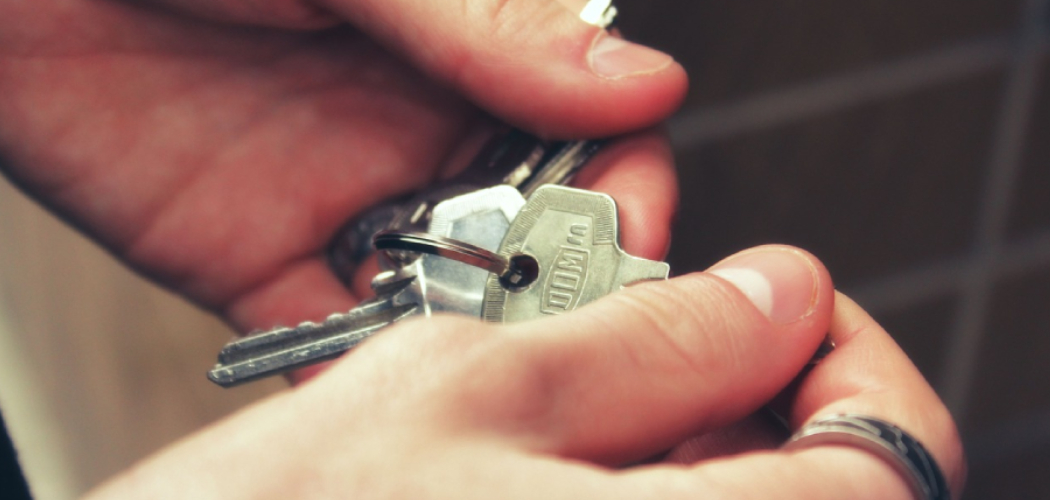
choose to duplicate existing keys if a spare is available, opt to rekey locks for enhanced security, or even replace the entire locking system to ensure utmost protection. Whichever method you choose, it is essential to ensure that only trusted individuals have access to your new keys. This protects your possessions and safeguards those you care about, reinforcing the security of your household.
By knowing how to get new keys for house challenges, you can handle unexpected situations with confidence and efficiency.
Options for Getting New House Keys
Key Duplication
Key duplication is the simplest and most cost-effective method for obtaining new house keys if you still have an existing key. This process involves creating a copy of your current key, enabling you to keep your original key while gaining additional duplicates as needed. You can visit a locksmith, hardware store, or key kiosk to duplicate a key. These places are equipped with the necessary machinery to
replicate keys quickly and efficiently. The cost of key duplication typically ranges from $2 to $10, varying based on the type of key and the service provider you choose. It is an ideal option when you require multiple keys for convenience or wish to ensure that family members or trusted individuals have access to your home.
Rekeying Your Locks
If you have lost your keys or moved into a new residence and want to ensure that no one else can enter, rekeying your locks is a practical solution. This process involves altering the lock’s internal components—specifically the pins or tumblers—making the old key ineffective. A locksmith will remove the lock cylinder and adjust the internal configuration to accommodate a new key. The cost of rekeying
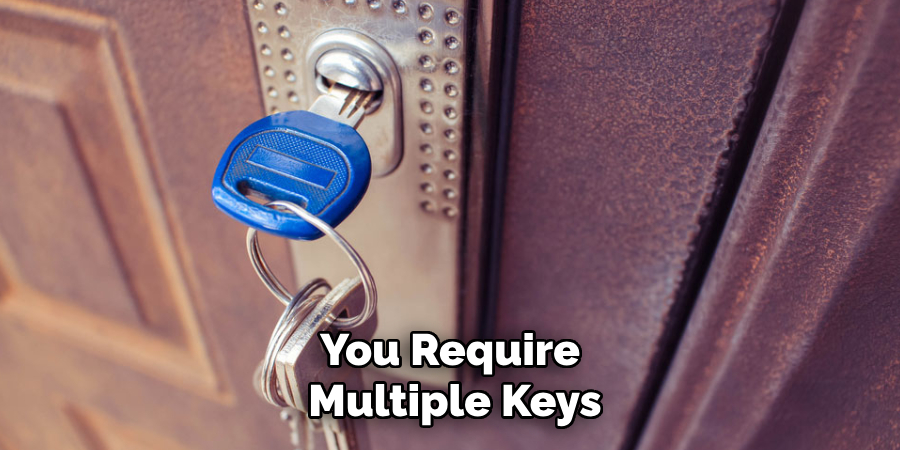
varies depending on the number of locks you need to be rekeyed, usually ranging from $50 to $150. Rekeying is an excellent option for maintaining security while keeping the existing locks intact.
Replacing the Lock
Replacing the entire lock is essential if the lock is outdated or damaged or if you desire an upgrade to a more secure or smart lock. This ensures enhanced security and, in some cases, can offer additional features like keyless entry or remote access. Replacing a lock generally incurs higher costs, typically from $100 to $300, depending on the type of lock you choose. Investing in new locks can provide
peace of mind with improved security measures, making it a worthy consideration for those seeking optimal protection for their home.
How to Get New Keys for House: Duplicating Existing Keys
Duplicating existing keys is a straightforward and convenient way to obtain new keys for your home, provided you still have access to your original key. There are several locations where you can get your keys duplicated:
- Local locksmiths: These professionals offer quick and reliable key duplication services. Locksmiths possess the expertise and equipment necessary to duplicate a wide variety of key types, ensuring accurate copies.
- Hardware stores: Many major chains, such as Home Depot and Lowe’s, offer key-cutting services. These stores are equipped with the tools required to duplicate basic keys, providing a convenient option for many homeowners.
- Key kiosks: Automated key duplication machines, such as Minute Key, can be found in various retail locations. These kiosks provide 24/7 service, enabling you to duplicate your keys at any time that suits your schedule.
To duplicate your keys, simply bring your existing key to the chosen location, where they will use a key-cutting machine to produce a copy. Note that some keys, particularly high-security or restricted keys, may require special equipment. If your key bears a “Do Not Duplicate” mark, you may need to use a locksmith to have a copy made legally. Key duplication is typically a quick process, often
taking just a few minutes, with costs ranging from $2 to $5 per copy for most basic house keys.
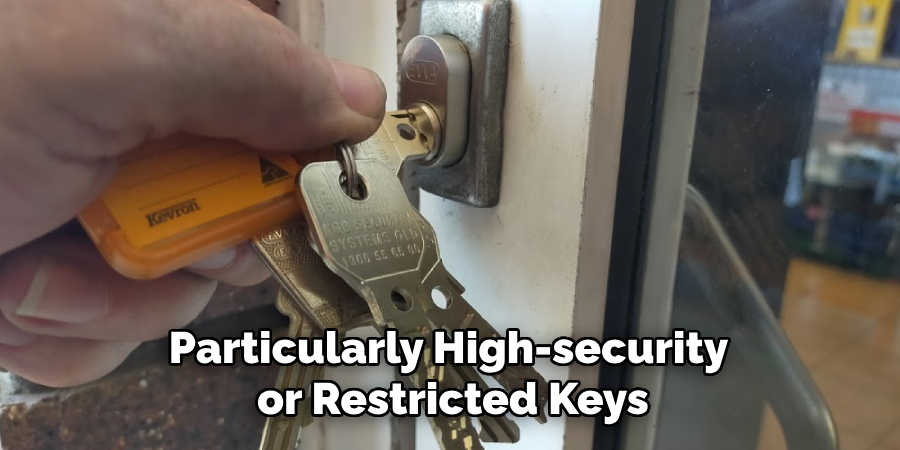
Rekeying Your House Locks for New Keys
What is Rekeying?
Rekeying is a process that involves changing the internal pins of your existing lock so it works with a new key while maintaining the existing lock hardware. Unlike replacing locks, rekeying is a less intrusive method and doesn’t require complete removal of the lock from the door, making it a popular choice for many homeowners. This method is advantageous when you prefer to keep the style and finish of your current locks or need a quick fix to enhance security.
When to Consider Rekeying
Rekeying is an excellent option in several scenarios. If you’ve lost your keys, rekeying ensures that anyone who finds them cannot access your home. It is also highly recommended when you move into a new home, as you can never be certain how many copies of the existing keys are circulating from previous owners, contractors, or realtors. Additionally, rekeying offers better control over who has access to your property without having to replace all your lock hardware.
How Rekeying Works
- Removal of the Lock Cylinder: A locksmith starts by removing the lock cylinder from your door.
- Disassembly: The locksmith carefully disassembles the cylinder to access the small pins or tumblers inside.
- Rearrangement of Pins: The pins within the cylinder are rearranged or replaced so that they match a new key, rendering any old keys ineffective.
- Reassembly and Installation: The lock is then reassembled and reinstalled into your door, which is now configured to work solely with the new key.
Once rekeying is complete, the previous keys will no longer function, ensuring your home is secure with only the new key granting access.
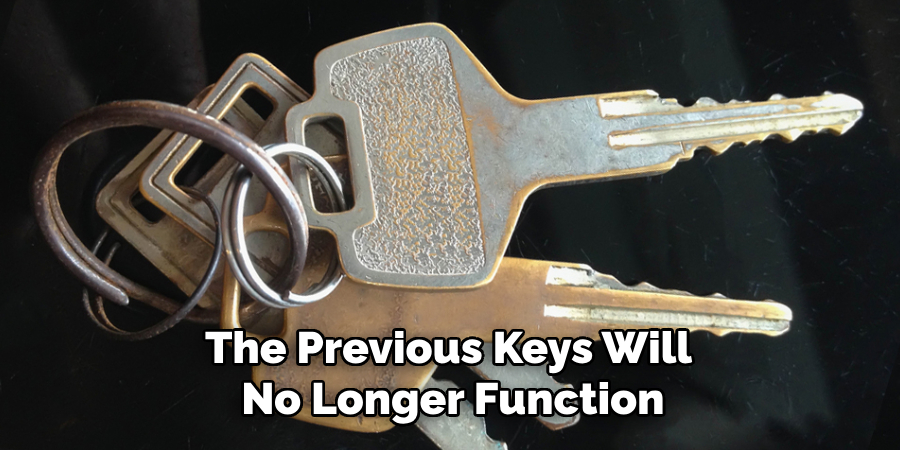
DIY Rekeying Kits
For the more hands-on homeowner, DIY rekeying kits are available for certain lock brands, such as Kwikset and Schlage. These kits provide everything you need, including new pins, a unique key, and tools necessary for disassembling and reassembling the lock. Prices for these kits typically range from $15 to $25, making them a cost-effective option. However, rekeying a lock requires technical skills
and patience, so it’s recommended for those who are comfortable with do-it-yourself projects. If you’re unsure about the process, hiring a professional locksmith is a safer alternative.
Professional Rekeying
Opting for a professional locksmith ensures that the rekeying job is performed both efficiently and correctly. Professional locksmiths charge between $50 and $150, depending on the number and complexity of the locks. Their expertise guarantees that the lock is smoothly reconfigured to work with your new key, mitigating the risk of damaging the lock or encountering issues later on.
Advantages of Rekeying vs. Replacing the Lock
Rekeying is often more affordable and quicker than replacing the entire lock hardware. By reconfiguring the internal components, you save on the cost of new locks and their installation. This method is ideal for securing your home without the added expense and labor of full lock replacement, offering both convenience and peace of mind.
Replacing Locks for New Keys
Why Replace a Lock Instead of Rekeying?
Lock replacement becomes necessary in several circumstances. If your lock is old, damaged, or unreliable, replacing it ensures your home remains safe. Older locks may lack the structural integrity needed for optimal security, making them easier targets for burglars. Additionally, if you desire an upgrade to a higher-security model, such as when you move into a new home and want personalized security
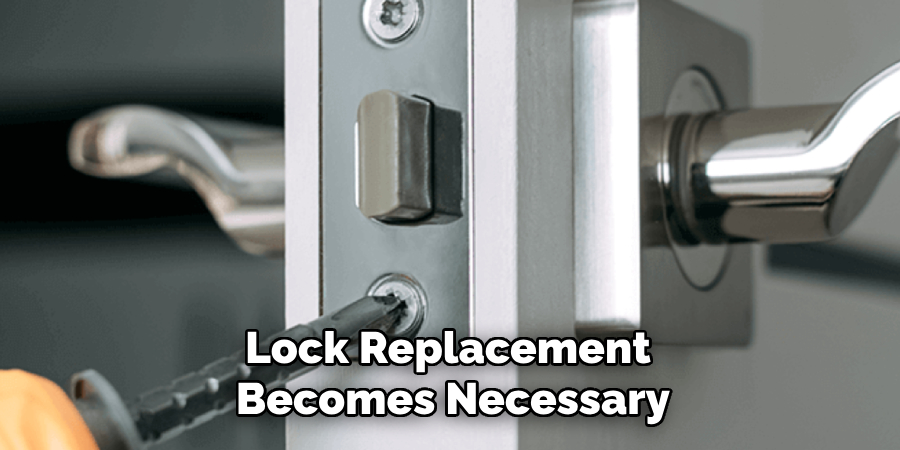
standards, opting for lock replacement provides peace of mind. Upgrading to a smart lock is an excellent choice, offering the latest security technology that allows you to manage home access through your smartphone or keycode, enhancing both convenience and control.
Types of Locks to Consider
- Standard Deadbolts: These are basic yet reliable locks that can be easily installed. They offer robust security at a reasonable cost, making them a popular option for many homeowners.
- Smart Locks: With technological advancements, smart locks have become increasingly popular. These locks allow you to unlock your door with a smartphone, keypad, or fingerprint, adding to your convenience and ensuring higher security through features like activity logs and remote access.
- High-Security Locks: Brands like Medeco or Mul-T-Lock provide enhanced security features. These locks often have restricted keys that are harder to duplicate, providing an additional layer of protection.
How to Replace a Lock
Purchasing a lockset from a hardware store is straightforward for those choosing to replace the lock themselves. A lockset typically includes all necessary components: the lock, new keys, and screws for installation. Start by removing the old lock from the door, then follow the manufacturer’s instructions to carefully attach and secure the new lock hardware. Proper alignment is crucial for the lock mechanism to function smoothly.
Hiring a Locksmith for Lock Replacement
Hiring a professional locksmith is often the best option to ensure your lock is installed correctly and aligned with the door, avoiding future issues. Locksmiths provide expert services and usually charge between $100 to $300, depending on the job’s complexity and the type of lock being installed. Their expertise assures a hassle-free installation, ensuring your new lock offers maximum security and
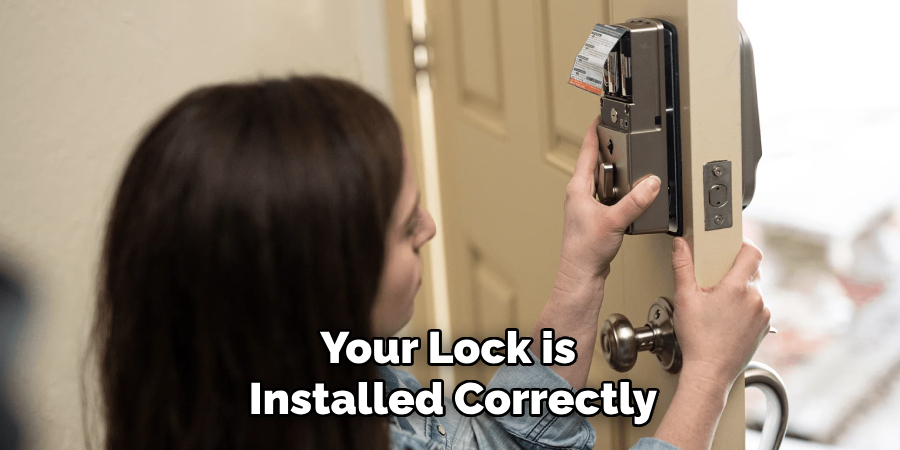
functionality. Whether upgrading to a modern lock or replacing a faulty one, professionals can tailor solutions to meet your specific needs.
Key Management and Security Tips
Keep Spare Keys in a Safe Place: Always make copies of your new keys and store them securely. Consider giving a spare key to a trusted friend or family member in case of emergencies. Avoid hiding keys in obvious places like under the doormat or a flower pot. Instead, use a secure lockbox with a code or leave it with a neighbor.
Use Key Tracking Devices:
Consider attaching Bluetooth key trackers (e.g., Tile or Apple AirTag) to your keys, making it easier to locate them if they are lost. These devices provide real-time tracking through an app on your smartphone, allowing you to find your keys quickly if they are misplaced.
Upgrade to a Keyless or Smart Lock:
If losing keys is a frequent issue, consider switching to a keyless entry system. Many smart locks offer the option to unlock the door using a PIN, fingerprint, or smartphone app, eliminating the need for traditional keys. This not only enhances security but also provides added convenience.
Change Locks When Moving:
If you’ve moved into a new house or apartment, rekey the locks immediately to ensure the previous owners or tenants no longer have access. This simple step is crucial to securing your new residence and maintaining personal safety.
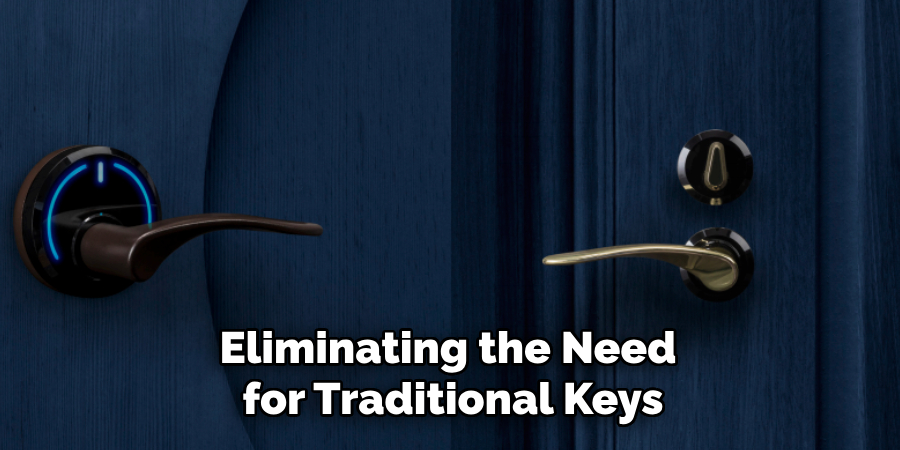
Conclusion
In conclusion, there are several options available when considering how to get new keys for house security. Each choice offers distinct advantages, from simple key duplication to the more involved processes of rekeying or replacing locks. Key duplication suits those needing extra copies without altering current security. Rekeying provides an affordable, quick method to ensure previous keys no longer
work, making it ideal for enhanced safety without replacing hardware. Conversely, lock replacement offers a fresh start with updated security technology, such as smart locks, for those seeking an upgrade.
Maintaining home security by controlling key access is paramount to safeguard personal property. Deciding between these options should account for your specific needs and financial considerations. When uncertain, consulting a locksmith ensures expert guidance and professional service to address any security concerns effectively. Choose wisely to ensure peace of mind when protecting your home and loved ones.

